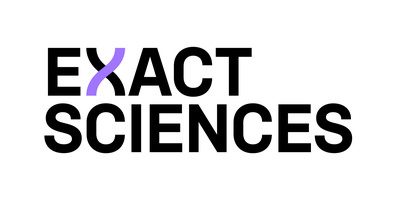RxPONDER Study Results Demonstrate that the Oncotype DX® Test Can Now Spare Chemotherapy Use in the Majority of Women with Node-positive Early-stage Breast Cancer
Exact Sciences Corp. (NASDAQ: EXAS) announced significant findings from the RxPONDER trial, presented at the 2020 San Antonio Breast Cancer Symposium, indicating that the Oncotype DX test can help avoid unnecessary chemotherapy for the majority of postmenopausal women with node-positive early-stage breast cancer. The study involved over 5,000 participants, revealing that two-thirds of postmenopausal women showed no chemotherapy benefit, while premenopausal women had a minor benefit. This research aims to refine treatment decisions and could impact tens of thousands of women globally.
- RxPONDER trial results define chemotherapy benefit for node-positive breast cancer, potentially altering standard treatments.
- Results indicate that about 85% of women with node-positive disease fall into the category of Recurrence Score 0-25, who may avoid chemotherapy.
- Potential to alleviate unnecessary chemotherapy for most postmenopausal women, providing clarity for treatment decisions.
- None.
Insights
Analyzing...
- First results from the independent SWOG Cancer Research Network-led Phase III study to be presented at the 2020 San Antonio Breast Cancer Symposium
- RxPONDER results from over 5,000 women likely to transform the treatment of node-positive breast cancer, as the TAILORx study did in node-negative disease
MADISON, Wis., Dec. 9, 2020 /PRNewswire/ -- Exact Sciences Corp. (NASDAQ: EXAS) today announced that data from the Rx for Positive Node, Endocrine Responsive Breast Cancer, or RxPONDER, trial successfully defined the benefit of chemotherapy in early-stage, node-positive breast cancer patients with Oncotype DX Breast Recurrence Score® results of 0 to 25. First results from the study, led by the independent SWOG Cancer Research Network, and sponsored by the National Cancer Institute (NCI), identified the majority of women with 1-3 positive nodes who received no benefit from chemotherapy.i The data will be presented on December 10 at the 2020 San Antonio Breast Cancer Symposium (SABCS).
RxPONDER showed a different effect of chemotherapy based on Recurrence Score® results for postmenopausal and premenopausal women. Postmenopausal women with Recurrence Score results 0-25 were not observed to show benefit from chemotherapy and may avoid the associated side effects of the treatment. Importantly, no chemotherapy benefit was observed regardless of the number of affected nodes, tumor grade, or size. Two-thirds of the women in the trial were postmenopausal.
The first results also demonstrated, after a median of five years of follow-up, that premenopausal women with Recurrence Score results 0-25 were observed to have a statistically significant chemotherapy benefit, with an average improvement in distant recurrence rates at 5 years of
Approximately
"Every day in clinics around the world, physicians wrestle with the question of how to best treat women with this common form of breast cancer," said study lead author Kevin Kalinsky, MD, a long-time SWOG investigator and director of the Glenn Family Breast Center at the Winship Cancer Institute of Emory University. "These results are practice changing and demonstrate that the great majority of postmenopausal women can be spared unnecessary chemotherapy and receive only hormone therapy. This should bring more clarity to physicians and some relief for patients."
Approximately
"With the RxPONDER and TAILORx trials, there is now definitive and undeniable clarity on who does and who does not benefit from chemotherapy among early-stage breast cancer patients, with either node-negative or node positive disease," said Steven Shak, MD, chief medical officer at Exact Sciences. "These long-awaited results, which continue to build on the body of evidence supporting the role of the Oncotype DX test in shaping clinical practice, are estimated to impact tens of thousands of women worldwide."
One of the largest clinical trials in women with node-positive HR+, HER2- early breast cancer, RxPONDER is a prospective, randomized Phase III study conducted at 632 sites in nine countries – the United States, Canada, Mexico, Colombia, Ireland, France, Spain, South Korea, and Saudi Arabia. The study enrolled more than 5,000 women with up to three positive nodes. Women with a Recurrence Score result 0-25 were randomized for treatment with hormone therapy alone or chemotherapy followed by hormone therapy. Randomized patients were stratified based on their Recurrence Score result, menopausal status, and the type of lymph node surgery.
The use of the Oncotype DX test in early-stage breast cancer is supported by prospective outcomes from more than 17,000 patients with node-positive disease and more than 83,000 patients with node-negative disease, including the TAILORx study. Results from TAILORx, published in 2018, showed that the Oncotype DX test identifies the vast majority of women with node-negative disease who receive no substantial benefit from chemotherapy (approximately
About Oncotype DX
The Oncotype DX portfolio of breast, colon and prostate cancer tests applies advanced genomic science to reveal the unique biology of a tumor in order to optimize cancer treatment decisions. In breast cancer, the Oncotype DX Breast Recurrence Score test is the only test that has been shown to predict the likelihood of chemotherapy benefit as well as recurrence in invasive breast cancer. Additionally, the Oncotype DX Breast DCIS Score test predicts the likelihood of recurrence in a pre-invasive form of breast cancer called DCIS. In prostate cancer, the Oncotype DX Genomic Prostate Score® test predicts disease aggressiveness and further clarifies the current and future risk of the cancer prior to treatment intervention, and the Oncotype DX AR-V7 Nucleus Detect™ test helps determine which patients with metastatic castration-resistant prostate cancer (mCRPC) are resistant to androgen receptor (AR)-targeted therapies. The Oncotype DX AR-V7 Nucleus Detect test is performed by Epic Sciences at its centralized, CLIA-certified laboratory in San Diego and offered exclusively by Exact Sciences. With more than 1 million patients tested in more than 90 countries, the Oncotype DX tests have redefined personalized medicine by making genomics a critical part of cancer diagnosis and treatment. To learn more about Oncotype DX tests, visit www.OncotypeIQ.com, www.MyBreastCancerTreatment.org or www.MyProstateCancerTreatment.org.
About Exact Sciences Corp.
A leading provider of cancer screening and diagnostic tests, Exact Sciences relentlessly pursues smarter solutions providing the clarity to take life-changing action, earlier. Building on the success of the Cologuard® and Oncotype DX tests, Exact Sciences is investing in its product pipeline to take on some of the deadliest cancers and improve patient care. Exact Sciences unites visionary collaborators to help advance the fight against cancer. For more information, please visit the company's website at www.exactsciences.com, follow Exact Sciences on Twitter @ExactSciences, or find Exact Sciences on Facebook.
NOTE: Oncotype, Oncotype DX, Oncotype DX Breast Recurrence Score, Oncotype DX Breast DCIS Score, Oncotype DX Genomic Prostate Score, and Oncotype DX AR-V7 Nucleus Detect are trademarks or registered trademarks of Genomic Health, Inc. Exact Sciences and Cologuard are trademarks or registered trademarks of Exact Sciences Corporation. All other trademarks and service marks are the property of their respective owners.
Forward-Looking Statements
This news release contains forward-looking statements concerning our expectations, anticipations, intentions, beliefs or strategies regarding the future. These forward-looking statements are based on assumptions that we have made as of the date hereof and are subject to known and unknown risks and uncertainties that could cause actual results, conditions and events to differ materially from those anticipated. Therefore, you should not place undue reliance on forward-looking statements. Risks and uncertainties that may affect our forward-looking statements are described in the Risk Factors sections of our most recent Annual Report on Form 10-K and any subsequent Quarterly Reports on Form 10-Q, and in our other reports filed with the Securities and Exchange Commission. We undertake no obligation to publicly update any forward-looking statement, whether written or oral, that may be made from time to time, whether as a result of new information, future developments or otherwise.
i Kalinsky, K. et al. Oral Presentation: [GS3-00]. San Antonio Breast Cancer Symposium; December 2020.
ii Exact Sciences, data on file
iii Heer E. et al., The Lancet 2020
iv Zhang et al., Breast Can Res Treat 2020
Investors: | Media (U.S.): | Media (Canada, Europe, Asia, Latin America): |
Megan Jones | Stephanie Spanos | Federico Maiardi |
+1 608-535-8815 | +1 608-556-4380 | +41 79-138-1326 |
![]() View original content to download multimedia:http://www.prnewswire.com/news-releases/rxponder-study-results-demonstrate-that-the-oncotype-dx-test-can-now-spare-chemotherapy-use-in-the-majority-of-women-with-node-positive-early-stage-breast-cancer-301189156.html
View original content to download multimedia:http://www.prnewswire.com/news-releases/rxponder-study-results-demonstrate-that-the-oncotype-dx-test-can-now-spare-chemotherapy-use-in-the-majority-of-women-with-node-positive-early-stage-breast-cancer-301189156.html
SOURCE EXACT SCIENCES CORP








